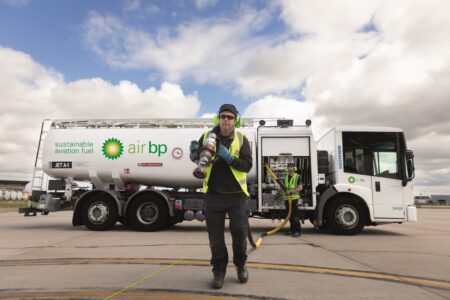Ken Mead, general counsel of the Aircraft Owners and Pilots Association (AOPA), examines the current issue of egregious fees at FBOs in the USA and what can be done to challenge them
Most FBOs do an excellent job at providing aeronautical services for general aviation aircraft, whether it be fueling, tie downs, parking, flight instruction or maintenance. They act as vital gateways for businesses, charities, and emergency services to reach cities and small towns across the USA.
However, there are some FBOs at publicly funded airports – around 50 or more mostly monopoly locations that control 100% of ramp space available to general aviation (GA) – that are forcing users to pay for services they don’t want or need and charging unreasonable fees which are all too often not communicated to pilots. And that number is likely growing.
Not only are these locations in violation of grant assurances associated with federal funds to ensure access and reasonable pricing, but they are depriving their communities of the revenue and other benefits that go along with a healthy general aviation airport.
The January 2018 issue of Business Airport International reported extensively on the issue, featuring a cover story that asked whether FBO fees are “becoming too high for non-corporate flyers”.
For more than a year, AOPA has been investigating egregious pricing practices and airport access, and things are beginning to change. Many airports are realizing the issue, and are taking steps to ensure their FBOs are friendly to GA and in compliance with FAA grant obligations. We call them “self-help airports”.
Utah’s Heber City Council, with AOPA’s support, updated the minimum standards at Heber City Municipal Airport, the most complained about location in AOPA’s inquiry, to allow self-service Avgas and increase competition. Eastern Iowa Airport in Cedar Rapids, Iowa, recently offered self-service Avgas at nearly US$2.00 per gallon below the single FBO’s price.
GA-friendly airports don’t have to mean sacrificing profits – just look at recent numbers from John Wayne Airport in Orange County, California. Since the Orange County Board of Supervisors voted to replace its previous tenant with ACI Jet following complaints over egregious prices, GA activity has surged. The new FBO reports averaging almost 23,000 gallons per month in Avgas fuel sales compared to around 7,000 gallons per month by its predecessor, and GA traffic is up nearly 40%.
But some airports are still realizing they have a problem. Last year AOPA filed three Part 13 complaints about airport access and pricing practices at Illinois’ Waukegan National Airport, North Carolina’s Asheville Regional Airport, and Florida’s Key West International Airport, three of the locations AOPA has received the most complaints about.
Leaders at Waukegan took swift action and now offer free tiedowns for transient aircraft, along with a pedestrian gate that will allow pilots and passengers direct access to their aircraft instead of having to walk through the FBO.
In response, AOPA withdrew the FAA complaint and commended airport leaders for standing up for pilots (read the story here).
In the remaining complaints, the monopoly FBOs at each airport argue that they hold an exclusive lease for the entire transient GA parking ramp and are not bound by FAA standards designed to protect reasonable access to public ramp space. According to the FBOs, only the runway and taxiway are considered protected public assets, not any portion of the transient parking area – a potentially scary precedent.
These federally funded facilities are supposed to be open to the public, not just the most profitable segments of aviation. AOPA will continue to pursue these complaints and fight for transparency and the ability of aircraft operators to park at these airports without being forced to buy services they don’t want or need. We also want to work with airport leaders to ensure they understand federal obligations and how to develop a healthy general aviation community.
Ken Mead has served as AOPA’s general counsel since 2013 and board secretary since 2014. Ken’s staff also manages AOPA’s Legal Services Plan. Before joining AOPA, he was special counsel for the law firm Baker Botts and served under the Clinton and Bush US Administrations as Inspector General of the US Department of Transportation, which included the FAA. Mead has testified before the US Congress on more than 250 occasions.
This article reflects the opinions of Ken Mead, AOPA general counsel; www.aopa.org
March 26, 2018




